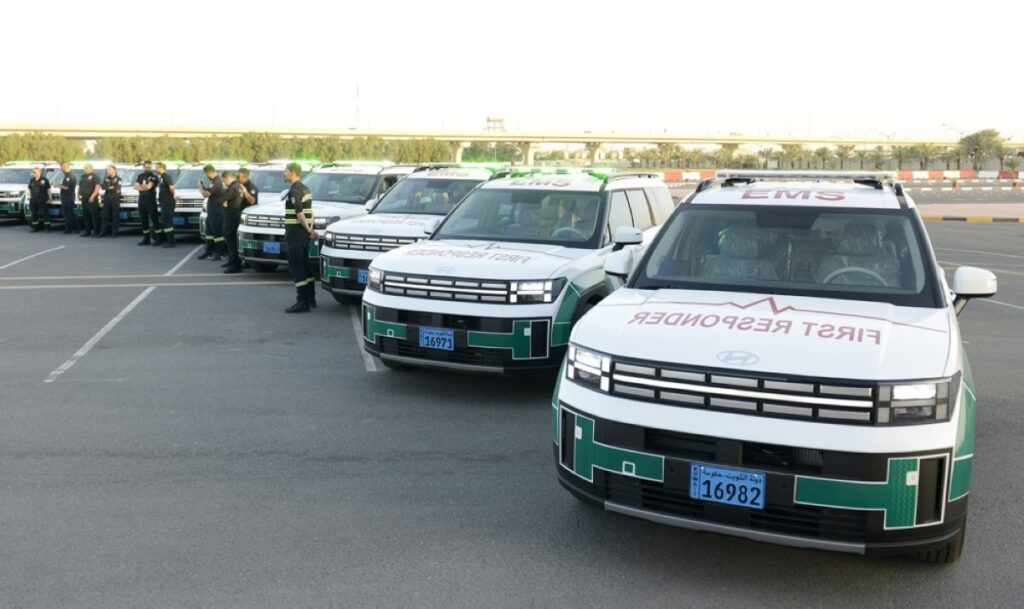KUWAIT: Kuwait’s Ministry of Health has officially launched its new First Responder fleet, a nationwide project aimed at delivering faster emergency medical care—especially during critical moments where rapid intervention can mean the difference between life and death.
Unveiled on Wednesday, the project is a joint initiative between the ministry’s Emergency Medical Department and the General Secretariat of Endowments. “This is not just an operational upgrade or logistical support—it’s a direct extension of our national health vision, which places a strong emphasis on medical readiness,” said Minister of Health Dr Ahmad Al-Awadhi at the launch event.
Designed to serve both remote and densely populated areas, the project aims to bring early resuscitation and immediate medical treatment to patients before they even reach the hospital. Dr Al-Awadhi explained that the goal is to “enhance the speed and quality of emergency response across the country, protect lives, and reduce complications.”
He added that the fleet of 28 specially equipped vehicles will be distributed strategically across Kuwait based on population density, service coverage, and response priorities. This setup, he said, will be “continuously evaluated and updated to maintain the highest operational efficiency.”

Dr Ahmad Al-Awadhi honors Nasser Al-Khader, Director of the Endowment Projects Department at the General Secretariat of Endowments, for the secretariat’s contribution to the fleet.

Minister of Health Dr Ahmad Al-Awadhi
Each vehicle in the fleet is staffed by trained emergency technicians and paramedics who are required to pass both Basic Life Support (BLS) and Advanced Cardiovascular Life Support (ACLS) courses. According to Assistant Undersecretary for Medical Support Services Dr Abdullah Al-Faras, the vehicles come fully stocked with resuscitation equipment, oxygen tanks, advanced respiratory devices, IV fluids, essential emergency medications, and tools to stabilize fractures and spinal injuries.
“When a call is received by the central operations room, the nearest First Responder vehicle is dispatched,” Dr Al-Faras explained. “The field teams then conduct an immediate assessment and send a report from the scene, followed by on-site care until backup arrives or the patient is transported to the hospital.”
The project is funded through the Waqf Healthcare Fund, part of the General Secretariat of Endowments. Nasser Al-Khader, Director of the Endowment Projects Department at the General Secretariat of Endowments, speaking on behalf of the Secretary-General, praised the collaboration with government bodies to support national development goals.
He highlighted the role of donors whose endowments continue to fund projects that serve the public good, saying, “This initiative reflects our commitment to using Waqf resources in line with donors’ wishes and Islamic legal guidelines.” — KUNA

